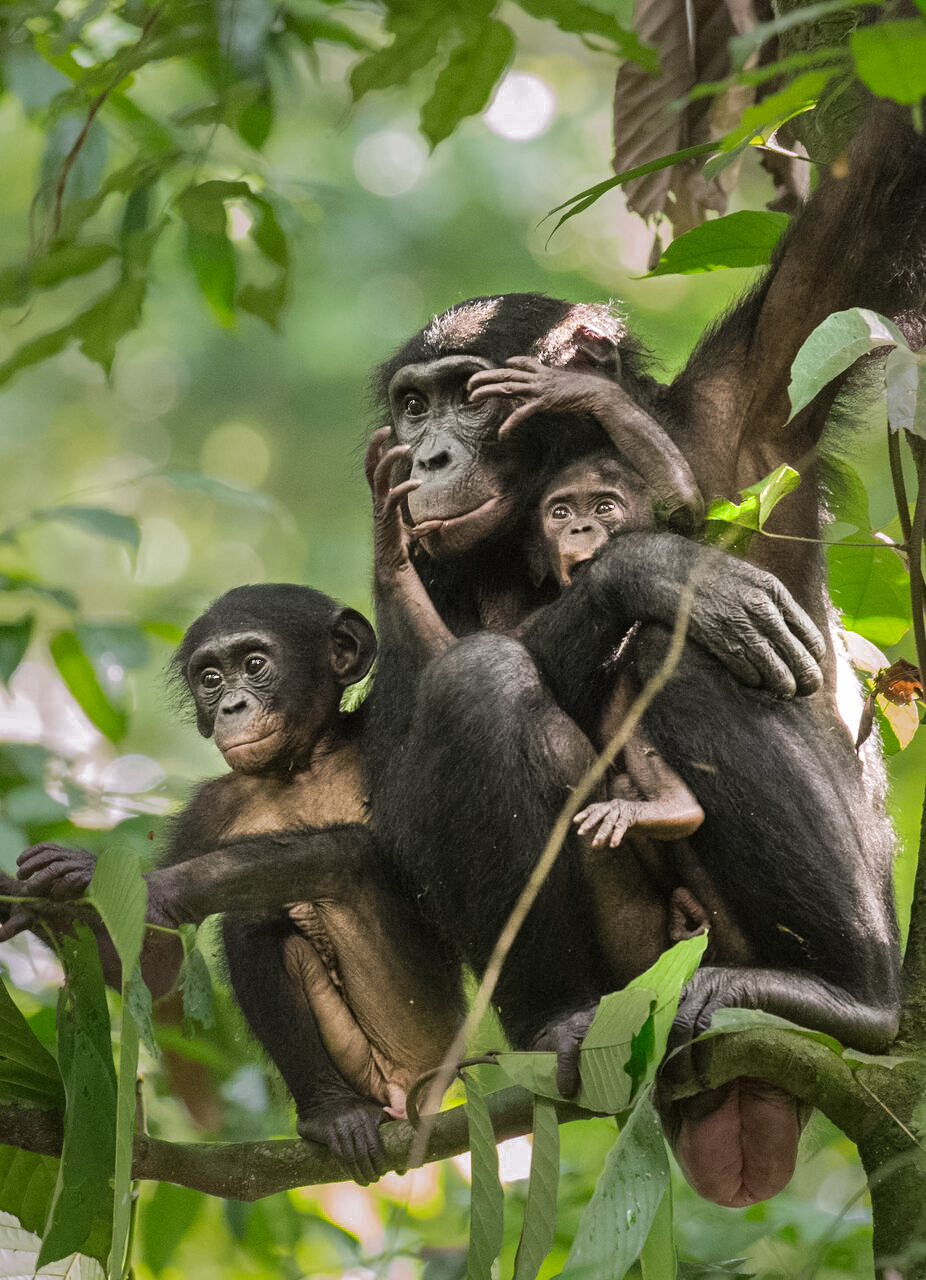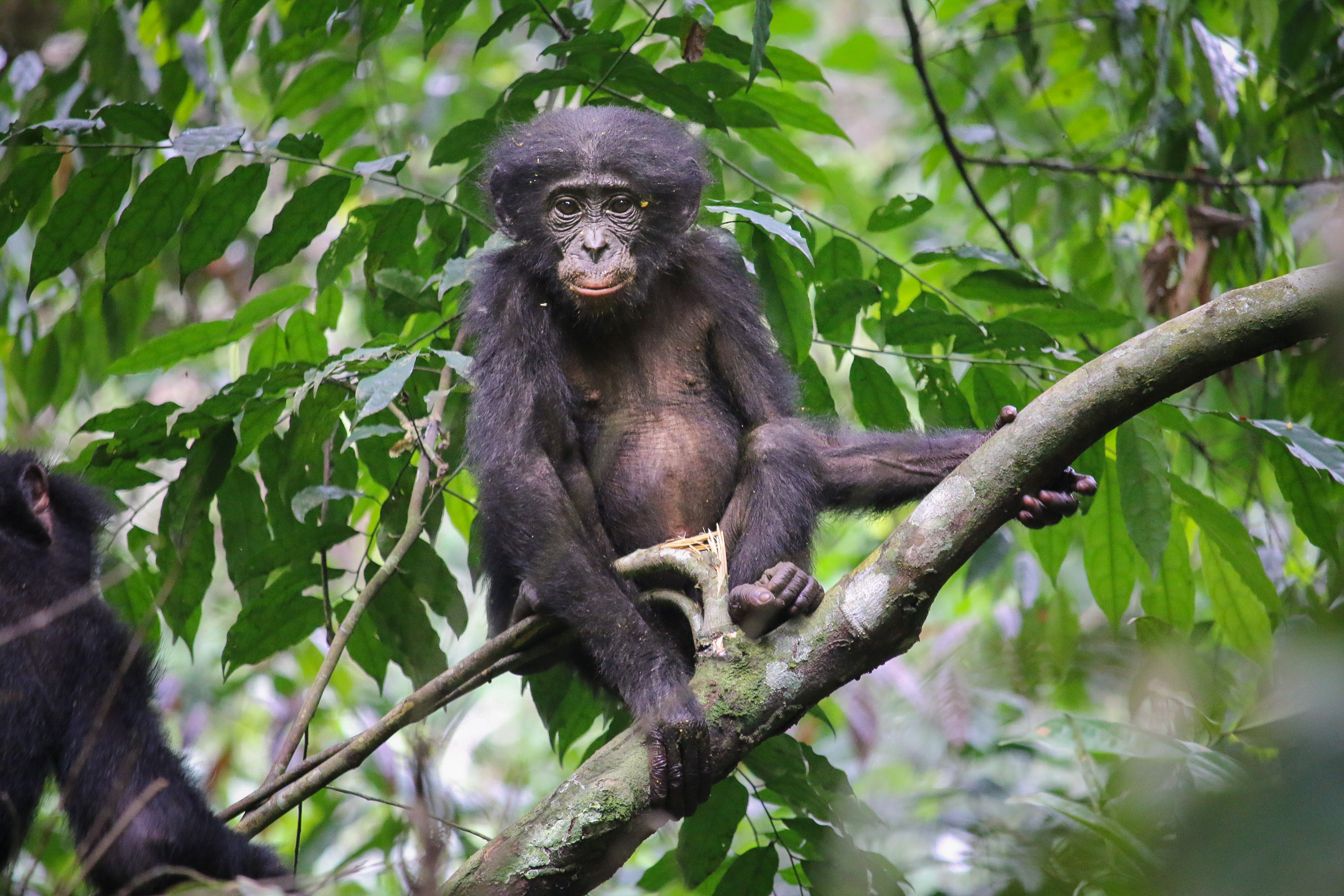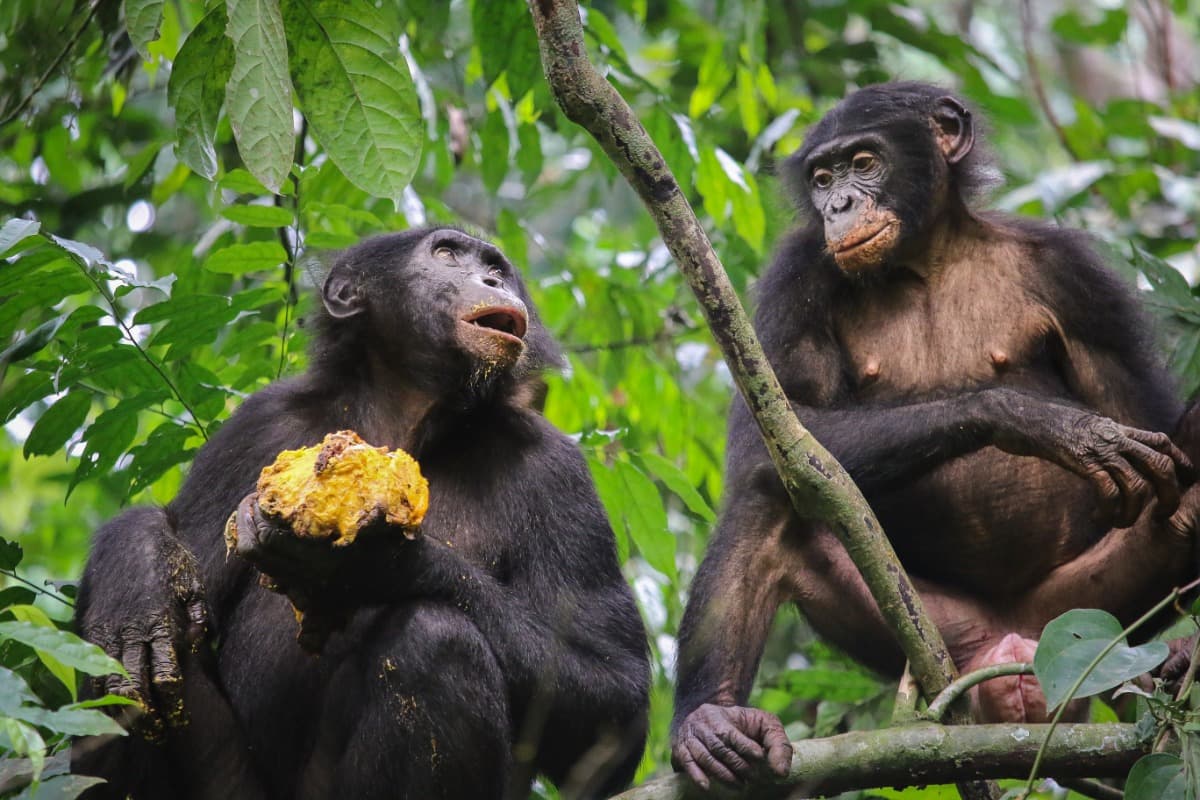KYOTO UNIVERSITY AND WAMBA COMMUNITY CONSERVATION
Rebuilding the brotherhood between the Bogando peoples and the bonobo
YOU CAN HELP…
Safeguard bonobos through support for conservation-driven community investments
INTRODUCTION
Support For Conservation of Bonobos is the community conservation arm of the Primate Research Institute at Kyoto University, Japan. The university has worked in Wamba since 1974, monitoring and studying bonobos. The Bogando peoples of the region have deep cultural connections with the forest, and often spend weeks of the year in the forest to hunt, log, and gather mushrooms, insects and medicinal plants. Historically, there have been cultural taboos against killing bonobos, as local tradition teaches they are the brothers of the Bogando. However, civil unrest and economic hardship has led to increases in poaching as well as slash-and-burn agriculture, threatening the safety of endangered bonobos in the forest.

PROJECT DETAILS
The Kyoto University research team has worked diligently to ensure that their long-running bonobo research and conservation efforts bring benefits to the communities around the Wamba region. Working with community leaders, they have helped safeguard protections for bonobos by investing in community infrastructure such as schools, roads, and bridges. They built the region’s first hospital and founded the Luo Scientific Reserve which supports the co-existence of bonobos and humans.
WHERE YOUR MONEY GOES
Your tax-deductible support contributed to conservation-driven infrastructure projects that benefit local communities in the Wamba region and are overseen with collaboration from Kyoto University scientists and community leaders.

WHY THE BONOBO TRUST ENDORSES THIS PROJECT
Dr. Takeshi Furuichi has spent decades balancing scientific research with local conservation of the endangered bonobos of Wamba. His community-led approach to conservation maintains the interests and dignity of local stakeholders, paving a path for long term relationships and community buy-in to protection of the bonobo.



